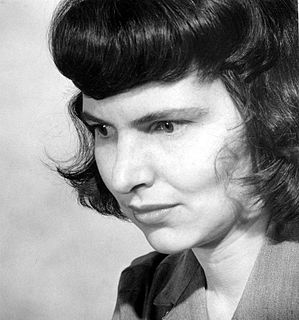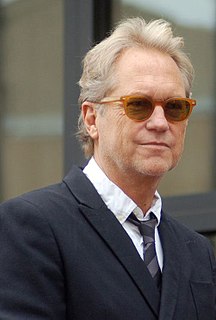A Quote by Henry David Thoreau
I lately met with an old volume from a London bookshop, containing the Greek Minor Poets, and it was a pleasure to read once moreonly the words Orpheus, Linus, Musæus,--those faint poetic sounds and echoes of a name, dying away on the ears of us modern men; and those hardly more substantial sounds, Mimnermus, Ibycus, Alcæus, Stesichorus, Menander. They lived not in vain. We can converse with these bodiless fames without reserve or personality.
Related Quotes
Healthy areas that are richest in information are those areas in the wild where we can get all the information that's available to us within our human hearing range. The most valuable information throughout human evolution has been faint sounds. We tend to think in our modern world that if it's loud, if it grabs our attention, it's important. We get a lot of that in advertising. But in nature, it's the faintest sound that's important; it has determined, in the past of our ancestors, perhaps, if they will live or die. Faint sounds are the earliest clues of newly arriving information.
At birth we begin to discover that shapes, sounds, lights, and textures have meaning. Long before we learn to talk, sounds and images form the world we live in. All our lives, that world is more immediate than words and difficult to articulate. Photography, reflecting those images with uncanny accuracy, evokes their associations and our instant conviction. The art of the photographer lies in using those connotations, as a poet uses the connotations of words and a musician the tonal connotations of sounds.
He comes to us as One unknown, without a name, as of old, by the lakeside, He came to those men who knew Him not. He speaks to us the same words: "Follow thou me!" and sets us to the tasks which He has to fulfill for our time. He commands. And to those who obey Him, whether they be wise or simple, He will reveal himself in the toils, the conflicts, the sufferings which they shall pass through in His fellowship, and, as an ineffable mystery, they shall learn in their own experience Who He is.
In vain do we seek tranquility in the desert; temptations are always with us; our passions, represented by the demons, never let us alone: those monsters created by the heart, those illusions produced by the mind, those vain specters that are our errors and our lies always appear before us to seduce us; they attack us even in our fasting or our mortifications, in other words, in our very strength.
All who ask receive, those who seek find, and to those who knock it shall be opened. Therefore, let us knock at the beautiful garden of Scripture. It is fragrant, sweet, and blooming with various sounds of spiritual and divinely inspired birds. They sing all around our ears, capture our hearts, comfort the mourners, pacify the angry, and fill us with everlasting joy.
Apropos, is not the Scotch phrase 'Auld Lang Syne' exceedingly expressive? I shall give you the verses on the other sheet. The words of 'Auld Lang Syne' are good, but the music is an old air, the rudiments of the modern tune of that name. ... Dare to be honest and fear no labor. ... Opera is where a man gets stabbed in the back, and instead of dying, he sings. ... Chords that vibrate sweetest pleasure thrill the deepest notes of woe. ... Critics! Those cut-throat bandits in the paths of fame.

































